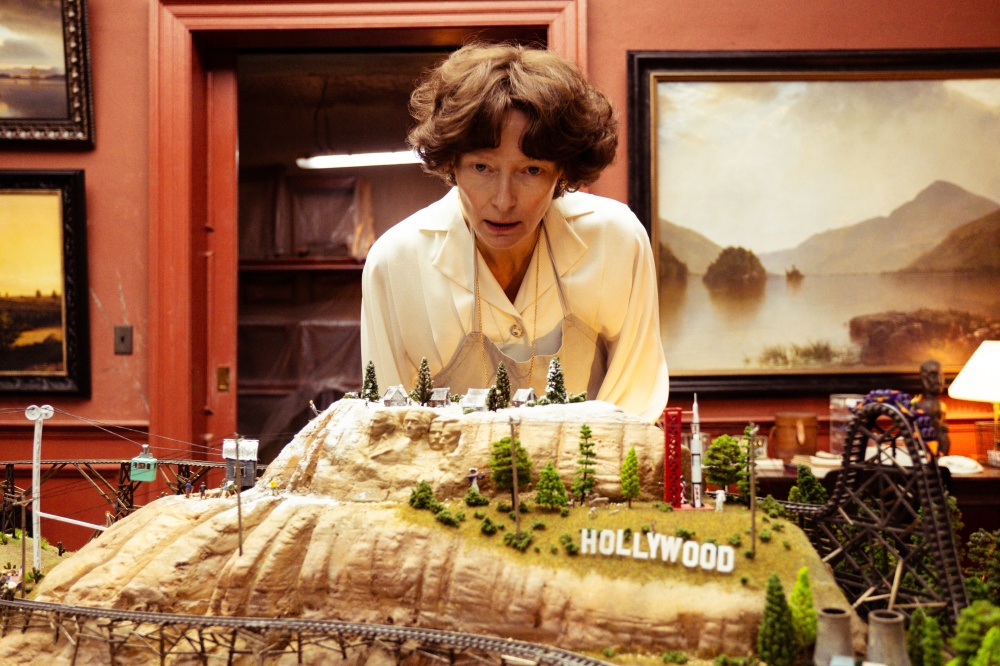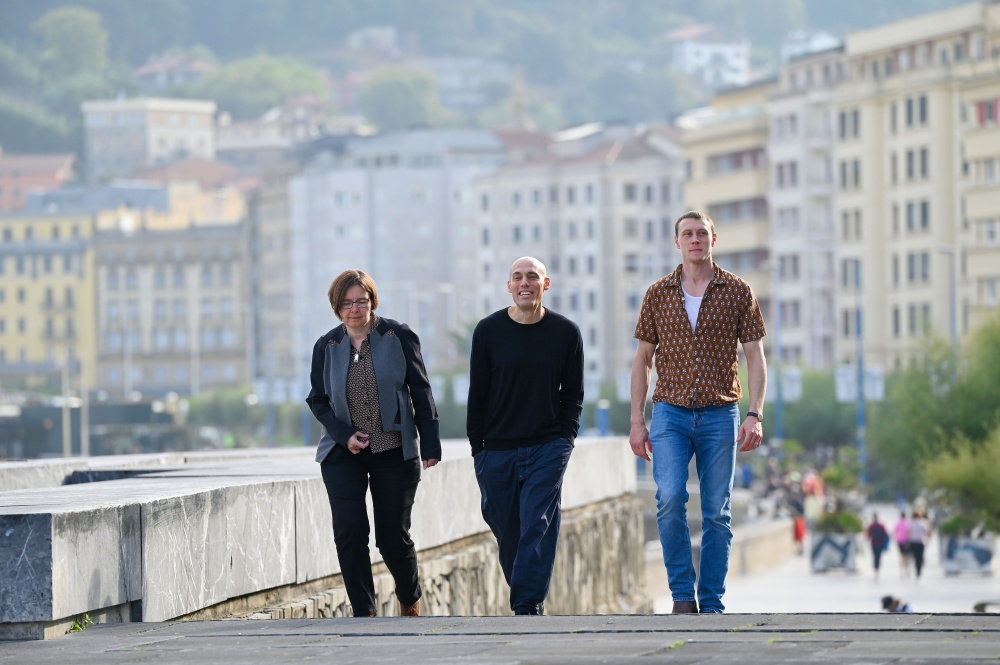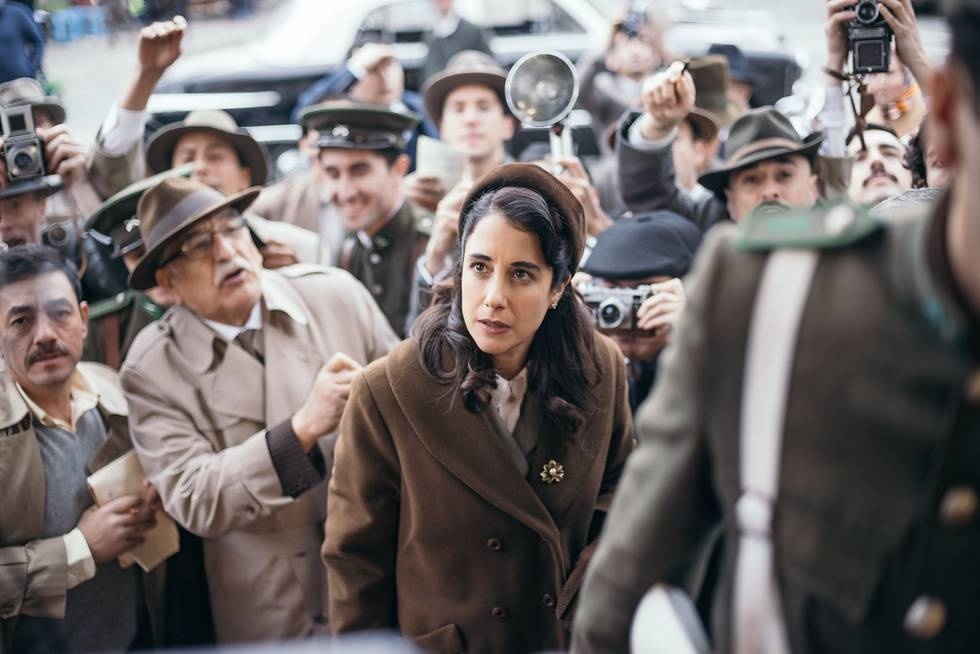

The headline may suggest it, but no, we haven't seen El Hoyo 2. But The End. Joshua Oppenheimer's film is built around a luxury bunker. The director of the film debuts in the feature film, after a fruitful career with the two documentary films that precede him. It brings a mojo movie to the screens. And he has also been brought to the kutxa-bunker of Kursaal, along with the working team. Your stay will be enough as a bunker: escorted from one side to the other, from the Hotel Maria Cristina to the Kursaal by car, passing the red carpet. Oppenheimer himself is not perhaps the most well-known face, but it is true that he has a prestigious band featuring actors such as George MacKay or the 1915 Schofield soldier, Tilda Swinton or Michael Shannon, among others.

Bunkers are for them these kinds of film festivals, and for journalists they are also the Festival. Having so many films and so massively, for eight days and next to home, is an opportunity to overcome a season. That quota of 6.24 remains small.
Monday with few forecasts. When I came to see The End, it wasn't easy to imagine anything in advance. What would be musical and science fiction (both at once, what Christ? ), this was what was advanced in the synopsis, and of course, being its first premiere, there is nothing on the net.
In a dystopian future, the film is situated about 25 years after a crisis in the form of an apocalypse, in a white, gray and dark cave, in which it seemed wet and cold, but not in practice. A family lives in a luxurious home bunker, the Mother, the Father and the Son – charges matter more than names – with their butler and physician. They are independent: vegetable garden (?) You don't see what you eat and drink, but you do, because you come together to eat. They also have electricity ... Well, as the story progresses, we'll find that the family is rich -- if anyone hesitated -- or at least it was rich in the previous life, and they had to see in that apocalypse, either actively or passively, but they influenced. Those things, not all of them, will be clarified.
In addition to the persons mentioned, only one more will be added to the story: Girl – brunette, who comes from another family, you don’t know where or how. His arrival will completely revolutionize the well-being of the family, and with that excuse Oppenheimer has forged several ideas: for example, how easy it is that the human being behaves as an egoistic and oppressive to the extreme, arguing “safety” – science fiction….
The truth is that the film looks more like theater. The theater, like the interior of that house was the stage. And also, every now and then they start singing -- they don't sing badly, but they don't sing very well either; and the lyrics aren't very good -- and they play with humor, the truth is they've also taught some elegant ones. It is appreciated, because otherwise it was not so easy to hold the projection of two and a half hours. Especially the first half, which has been a little longer. Seen from most places, the film is a little weird.

An idea bothered me this Monday. Isn't this Festival a metafilm?
Besides The End, there is a bunker in the other movie that has been seen in the morning, The Place of the Other (The Place of the Other), from Chile. Later we will delve into this link of the bunker. But keep in mind that the last movie he saw on Sunday was The Flashes...
From film to film, we are changing language, from director, from actor... The protagonists are changed, the time of change, the props... But many stories share a base. It's a headline: virility is kicked by session. More or less, on the one hand or on the other, but the woman is in the center and they are beaten, well deserved and argued, by man and virility. We could draw nuances, if we put that error target in what every movie does; but, listen, you also have to look at the effort. But the time comes when the effort is not too big.
A headline: virility is ‘kicking’ session. More or less, on the one hand or on the other, but women are in the middle
The movie The Place of the Other tells the story of a man who doesn't know the story. In Chile, in 1955, famous writer María Carolina Geel killed her lover when they ate in a high-class restaurant and in the middle of the dining room. There was no mystery, everyone saw it was him, and the woman confessed it. He was sentenced to life imprisonment and wrote a novel that, while in the dungeon, would report him a great prestige: Women's prison. The Chilean poet settled abroad, Gabriela Mistral, solicited his pardon from the Chilean president, who finally agreed to it. Everything so far, it's true.
Fiction here: The protagonist of the film is not the woman who killed her lover, but the secretary of the judge who will take care of the trial. Another woman, Mercedes. It will have a special connection with the intern, both women, in case they have something to express. Mercedes is uncomfortable with her lifestyle and is very attracted to what she sees at Geel’s house, an autonomous, sovereign and “free” woman. Here's the concept of bunker: Mercedes embraces the other's house by taking advantage of the fact that he is in jail and begins a parallel life.
The essence of the film, and that is why I found it a beautiful film, is absolutely linked to the social order of limiting the female family to domestic tasks, is well worked and the discourse is liberating. However, it should not have been the most prominent film in the Official Section, but certainly if it is advisable for anyone.
.jpg)
And now, tell me no, if at least you've read the chronicles of the previous days, all of this is not a metafilm. We have already said the bunker, and we came from seeing the flashes on Monday morning. Isabel's role in this film, the demonstration of strength, commitment to care, family support... In The place of the other it is nice to see how the main actor, Inés Bortagaray, embodies the daily life of a woman who wants to go beyond housework. Mastering the woman, cooking, is a movie that is present.
A few years ago this would not be reflected on the screen, even though it is much stronger and more crude in reality. The Festival is increasingly projecting the oppression of the female subject, and that is a significant indicator.
[Then we have to recognize that, after The Place of the Other, the film that tells the bullfights of the bullfighter Andrés Roca has been screened in the Official Section and that the room was full of people. The journalist has had 40 minutes of shooting of two hours of film, in which Edurne Azkarate participated. We have seen three violent bulls die, in all haste, after seeing them suffer for a few minutes. Almost the only concern of the bullfighter was whether the public was satisfied or not. The film has continued in the same tone, according to another journalist who has had to watch the whole film because of necessity. That was, perhaps, what was lacking beyond feminist discourse: Will we say the compensation? “Respect the hobbies of all”?]